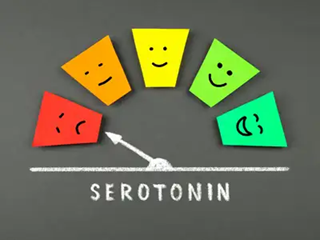[ad_1]

New Delhi: Disturbances in the gut of an autistic child could disrupt how serotonin — a brain chemical important for social interactions — is produced, thereby affecting their behaviour, a new study has suggested. Children with autism are known to face digestive issues and the gut is being looked at for purposes, such as diagnosis of the neurodevelopmental condition, in which one displays repetitive behaviour and affected social communication.
The study, published in the journal Nature Communications, adds to a growing body of evidence that the gut could have a role in a child who develops autism. Signs such as avoiding eye contact and not responding to one’s own name can present before age two, even as diagnosis can be done at any age.
Researchers from the University of Southern California said the study raises the possibility of new treatments.
“We demonstrated that gut metabolites impact the brain, and the brain, in turn, affects behaviour. Essentially, the brain acts as the intermediary between gut health and autism-related behaviours,” first author Lisa Aziz-Zadeh, a professor at the department of psychology, University of Southern California, said.
For the study, the researchers analysed data of stool samples, along with brain scans and behaviours, of 43 children with autism and 41 without, all aged between 8-17.
The autistic children were found to have lower levels of serotonin, which is formed when tryptophan (commonly found in protein-rich foods) is metabolised. The brain chemical serotonin is known to be crucial for processing one’s emotions and interacting socially.
Aziz-Zadeh said, “We know that children with autism have brain differences – certain parts of their brain are either less active or more active compared to typically developing children.”
“We also know they often experience gastrointestinal issues, such as constipation, stomach pain and other digestive problems,” the author added.
The researchers explained that since much of the body’s serotonin is created in the gut microbiome, disturbances to gut health can affect the production of serotonin.
They added that most of the neurons (nerve cells) from the gut send signals to the brain, with the bulk of these signals sent from the gut to the brain, compared to those sent in the opposite direction.
“Our study reveals that atypical activity in several brain regions previously implicated in ASD (autism spectrum disorder) pathophysiology is associated with several tryptophan metabolites and symptomatology in youth with ASD,” the authors wrote.
A 2024 study by The Chinese University of Hong Kong suggested that gut bugs could be contributing to a child developing autism and that stool samples could help in diagnosing the disorder. The study is published in the journal Nature Microbiology.
[ad_2]

